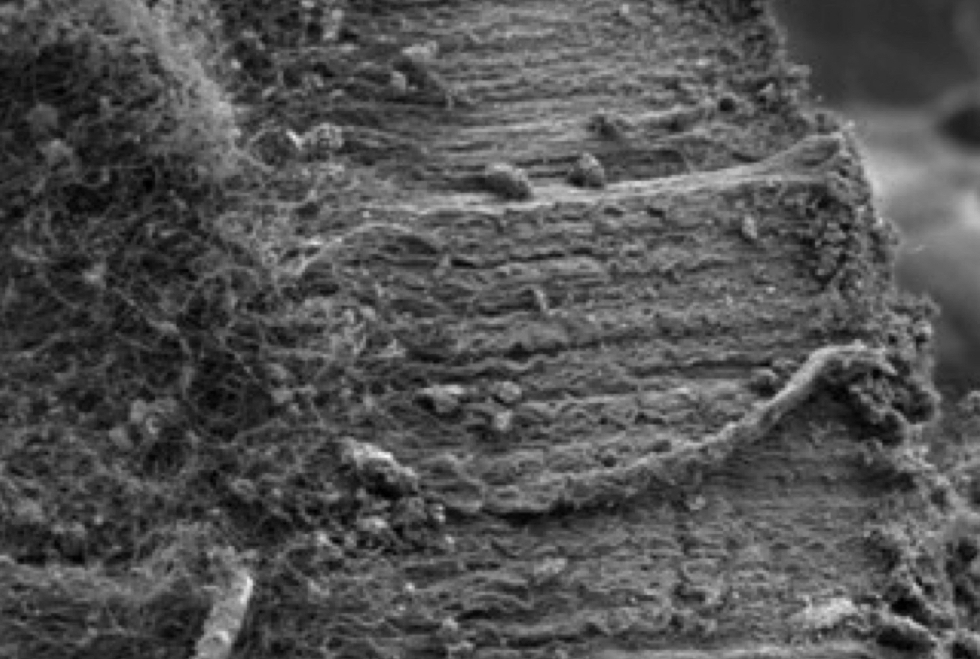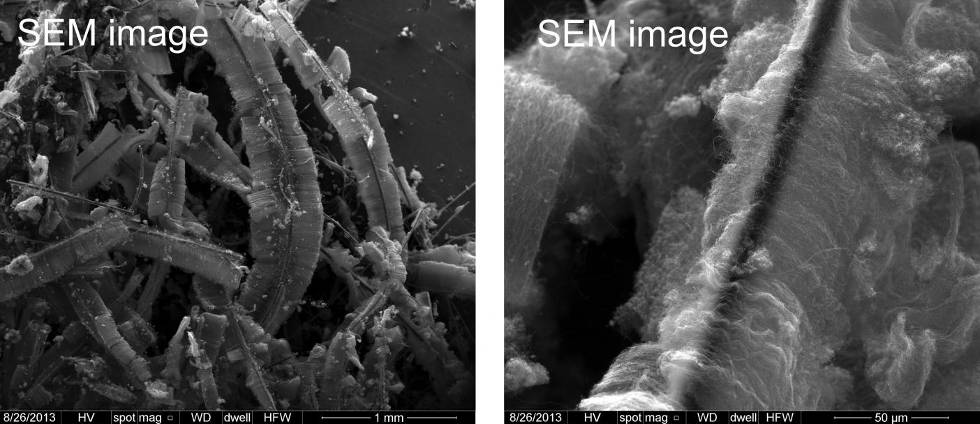
Carbon nanotubes immobilised in a tuft of quartz fibre have the power to remove toxic heavy carbon metals from water, according to researchers at the Energy Safety Research Institute at Swansea University in collaboration with researchers at Rice University.
Filters produced in the lab of Prof Andrew R Barron by Perry Alagappan absorb more than 99 per cent of metals from samples laden with cadmium, cobalt, copper, mercury, nickel and lead. Once saturated, the filters can be washed with a mild household chemical like vinegar and reused.
The researchers calculated one gram of the material could treat 83,000 litres of contaminated water to meet World Health Organization standards, which is enough for supply the daily needs of 11,000 people.
The lab's analysis of the new filters appears in Nature's open-access Scientific Reports.
The filters consist of carbon nanotubes grown in place on quartz fibres that are then chemically epoxidised.
Lab tests showed that scaled-up versions of the "supported-epoxidised carbon nanotube" (SENT) filters proved able to treat five litres of water in less than one minute and be renewed in 90 seconds. The material is claimed to have retained nearly 100 per cent of its capacity to filter water for up to 70l per 100g of SENT, after which the metals contained could be extracted for reuse or turned into a solid for safe disposal.


While the quartz substrate gives the filter form and the carbon nanotube sheath make it tough, the epoxidation via an oxidising acid appears to be most responsible for adsorbing the metal, they determined.
Alagappan, currently an undergraduate student at Stanford University, was inspired to start the project during a trip to India, where he learned about contamination of groundwater from the tons of electronic waste that are sent to landfill.
Barron said the raw materials for the filter are inexpensive and pointed out the conversion of acetic acid to vinegar is ubiquitous around the globe, which should simplify the process of recycling the filters for reuse even in remote locations.
"Where this would make the biggest social impact will be in village scale units that could treat water in remote locations in developing regions, however, there is also the potential to scale up metal extraction, in particular from mine waste water."










McMurtry Spéirling defies gravity using fan downforce
Ground effect fans were banned from competitive motorsport from the end of the 1978 season following the introduction of Gordon Murray's Brabham...